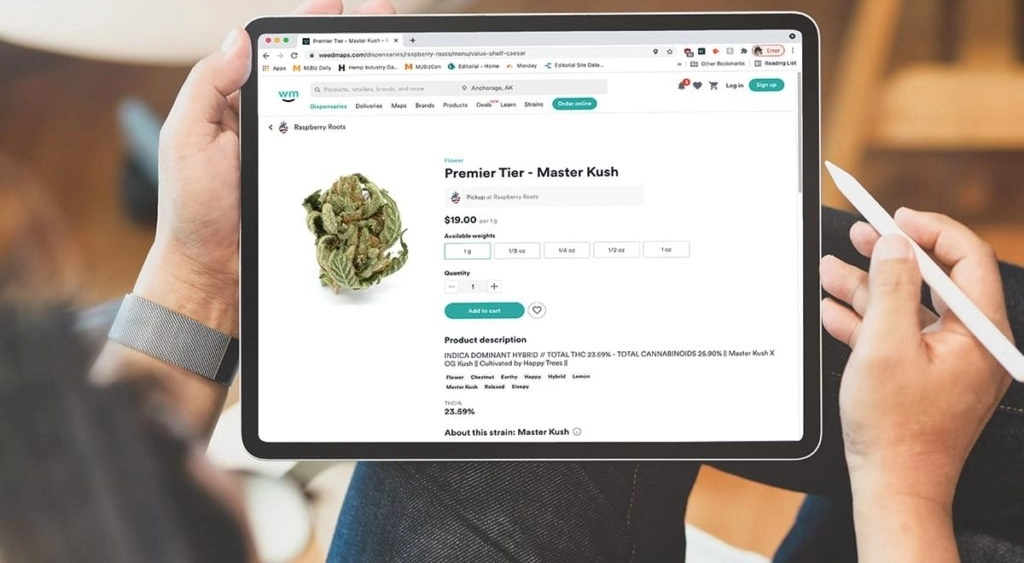Deep Roots Harvest has until February to complete the four dispensaries it’s building – a goal the Las Vegas-based cannabis business is finding challenging because of recent difficulties securing construction materials.
Most states require cannabis businesses to begin operating within a certain time period after being granted a license. But marijuana companies are struggling to meet the imposed deadlines for new facilities because of increased costs for building materials and supply-chain challenges.
Deep Roots Chief Operating Officer Jon Marshall estimates that materials costs are up as much as 20%, and the company is having to absorb the extra expense. “We can’t delay our projects, so we have to keep pushing forward,” he said.
Deep Roots recently wrapped up a 6,300-square-foot retail store in Reno, and Marshall estimates that construction materials cost the company an additional 10%-15% above the budgeted amounts.
On top of that, he said, the lead time to get materials has increased, which could have a negative impact on the company’s revenue.
“If I don’t meet the deadline (to open), I’ll have to lobby for an extension due to unforeseen circumstances,” Marshall said.
Weighing options
Deep Roots has been debating bulk-ordering materials – especially the metal studs used for framing – to be sure laborers have enough on hand to complete the remainder of the company’s projects. The challenge, Marshall said, is safely storing the materials until they are used.
“We know that costs could continue to escalate or the supply chain could stall,” Marshall said. “One contractor told us there was a four-week backup on metal studs. … We’re having to juggle vendors to find backup supplies.”
Even as the cost of materials rises, there are measures cannabis businesses can take to keep expenses down, said Sam Andras, principal of MJ12 Design Studio, an architectural and interior design firm in Centennial, Colorado, that’s being acquired by Lafayette, Colorado-based Urban-Gro.
First, construction drawings should be complete, and the cost of the materials should be locked in as early as possible, Andras said. The project should be put out for bid within 30 days, or companies run the risk of prices going up.
It’s also critical to identify a space where materials can be delivered, stored and secured, Andras said.
“Even if we can find the materials, we’re having issues with delivery,” Andras said. “We have a project where we have insulated metal panels, but we can’t find truck drivers to deliver the product to the (build) site.”
What’s behind delays
It’s not just the global COVID-19 pandemic that’s causing the increased costs and supply shortage, said David Fettner, principal of Highwood, Illinois-based Grow America Builders.
It became more difficult to procure insulation after temperatures plummeted in February in Texas, which is among the top insulation producers and distributors nationwide. Additionally, when the Suez Canal was blocked for six days in March, it became more difficult to get all sorts of building materials, Fettner said.
“A lot of construction components are a hot commodity right now,” Fettner said. “Luckily, we’ve stockpiled.”
Fettner estimates that the cost of some building materials has gone up as much as 40%. Most facilities for cannabis businesses are built using metal stud construction, and the cost of metal studs has gone up 15%-20%, Fettner said.
“Cost is an issue, but the availability is really what we have red-flagged,” Fettner said. “When you’re building anything in the cannabis industry, time is of the essence. When we see an item that’s typically in stock but is now eight weeks out, we stockpile.”
Just keep building
Most of the cultivation facilities that St. Louis-based Arco National Construction offers are preengineered metal buildings. The cost of steel has jumped as much as 40% in the past 12 months, and the building material also is in short supply, said Drew Blaylock, Arco’s director of preconstruction.
Even so, cannabis companies are not delaying construction of their facilities.
“A lot of them are moving forward because they have licensure requirements,” Blaylock said of Arco’s cannabis clients. “A lot can ask for extensions, but not a lot are granted extensions.”
Blaylock said Arco, a design-build firm, will pay a premium for materials to ensure it meets the established timeline. If the price of materials is pushing the project’s cost beyond the budget, and a cannabis business is required to be operating by a certain time, the company can either build a smaller facility or leave some of the rooms unfinished, he said.
“You’ve got to think outside the box,” Blaylock said. “You have to find more creative ways to get there – whether that’s through value engineering or changing your design. … Tell me what you must have and what you’d like to have, and we’ll come up with the best mousetrap we can design.”
To keep costs down, Blaylock recommends getting a contractor involved in the project as soon as possible so that someone who has a good sense of the process and cost of materials and labor can help guide decisions and make creative suggestions about where to save.
Paying for construction
With higher construction costs comes the need for a lender that can bridge the financing gap from the time construction starts until the marijuana business is actually generating revenue. That’s where businesses like Pelorus Equity Group come in.
The Newport Beach, California-based mortgage real estate investment trust (REIT) was formed in 2010 and entered the cannabis real estate lending market in 2016. Pelorus will consider transactions in any state where cannabis is legal, said Rob Sechrist, president of the REIT.
“What we’re trying to solve for is when a cannabis-use tenant wants to come into a property, but the tenant doesn’t have income coming in and doesn’t have the $1 million budget it takes to build that property out,” Sechrist said. “We’re trying to solve for making sure a tenant doesn’t have to use cash – they should be saving that gun power until they start generating revenue.”
With the current cost of materials, Sechrist recommends locking in a fixed-cost guarantee when hiring a contractor – even if it means paying slightly more for the project. That way, if the cost of materials increases or there is a change order, the business is protected from paying more, Sechrist said.
Otherwise, contractors will write into the budget that they have the ability to surcharge. If the price is locked in, the contractor has to eat the difference.
“When you’re trying to understand what your costs are, you want to lock down as many things as possible; a surcharge would be part of the negotiation,” Sechrist said. “You need to lock it down because you can’t afford surprises. We can’t afford for our borrowers to have that open-endedness.”





